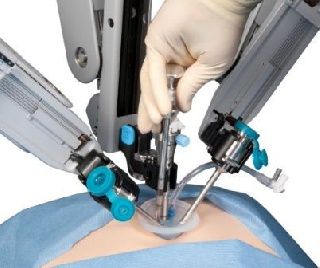Single Incision Robotic Surgery is a new and innovative surgical technique that has revolutionized the way surgeries are performed. It is a minimally invasive procedure that involves using a single incision to perform complex surgeries. Single Incision Robotic Surgery was first started in Asia at World Laparoscopy Hospital, and since then, it has gained a lot of popularity across the world. In this essay, we will explore the history, benefits, and future of Single Incision Robotic Surgery.
History of Single Incision Robotic Surgery Single Incision Robotic Surgery is a relatively new surgical technique that was first developed in the early 2000s. The technique involves using a single incision, usually in the belly button, to perform surgeries that would typically require several incisions. The technique was developed to reduce the invasiveness of surgery, which would lead to less pain, less scarring, and faster recovery times.
The first Single Incision Robotic Surgery was performed in Asia at the World Laparoscopy Hospital in New Delhi, India. Dr. R.K. Mishra, the founder of the World Laparoscopy Hospital, developed the technique and performed the first surgery in 2009. The surgery was a cholecystectomy, which is the removal of the gallbladder. The surgery was a success, and since then, Dr. Mishra and his team have performed thousands of Single Incision Robotic Surgeries.
Benefits of Single Incision Robotic Surgery Single Incision Robotic Surgery has several benefits over traditional surgical techniques. One of the most significant benefits is that it is less invasive, which leads to less pain and faster recovery times. Traditional surgery requires several incisions, which can be painful and take longer to heal. With Single Incision Robotic Surgery, patients only have one incision, which is less painful and heals faster.
Another benefit of Single Incision Robotic Surgery is that it results in less scarring. Traditional surgery can leave multiple scars, which can be unsightly and cause embarrassment for patients. With Single Incision Robotic Surgery, there is only one small incision, which is usually in the belly button. The incision is so small that it is almost invisible once it heals.
Single Incision Robotic Surgery also has a lower risk of complications than traditional surgery. Traditional surgery requires multiple incisions, which can increase the risk of infection, bleeding, and other complications. With Single Incision Robotic Surgery, there is only one incision, which reduces the risk of complications.
Single Incision Robotic Surgery is also more precise than traditional surgery. The robotic arms used in Single Incision Robotic Surgery can move in ways that human hands cannot, which allows for more precise movements. This precision can lead to better outcomes for patients.
Future of Single Incision Robotic Surgery Single Incision Robotic Surgery is still a relatively new surgical technique, and there is a lot of potential for its future. As the technology continues to develop, we can expect to see more complex surgeries being performed using Single Incision Robotic Surgery. Currently, Single Incision Robotic Surgery is primarily used for gallbladder removal, hernia repair, and hysterectomies. However, as the technology continues to advance, we can expect to see more surgeries being performed using this technique.
One area where Single Incision Robotic Surgery has the potential to be particularly useful is in the field of urology. Prostatectomies, which are the removal of the prostate gland, are currently performed using traditional surgery. However, Single Incision Robotic Surgery has the potential to be a less invasive and more precise way of performing this surgery. As the technology continues to develop, we can expect to see more urologists using Single Incision
Single Incision Robotic Surgery also has the potential to be used in the field of cardiovascular surgery. Currently, most cardiovascular surgeries are performed using traditional surgery. However, Single Incision Robotic Surgery has the potential to be a less invasive and more precise way of performing these surgeries. As the technology continues to develop, we can expect to see more cardiovascular surgeons using Single Incision Robotic Surgery.
Another area where Single Incision Robotic Surgery has the potential to be useful is in the field of pediatric surgery. Pediatric surgeries are often more complicated than adult surgeries due to the smaller size of the patients. Single Incision Robotic Surgery has the potential to be a less invasive and more precise way of performing these surgeries. As the technology continues to develop, we can expect to see more pediatric surgeons using Single Incision Robotic Surgery.
Single Incision Robotic Surgery also has the potential to be used in space exploration. The limited space and resources available in space make it challenging to perform traditional surgery. Single Incision Robotic Surgery has the potential to be a less invasive and more precise way of performing surgeries in space. As space exploration continues to expand, we can expect to see more Single Incision Robotic Surgeries being performed in space.
Conclusion
Single Incision Robotic Surgery is a new and innovative surgical technique that has revolutionized the way surgeries are performed. It was first started in Asia at the World Laparoscopy Hospital and has since gained popularity across the world. Single Incision Robotic Surgery has several benefits over traditional surgical techniques, including less invasiveness, less scarring, and faster recovery times. As the technology continues to develop, we can expect to see more complex surgeries being performed using Single Incision Robotic Surgery. Overall, Single Incision Robotic Surgery has the potential to improve patient outcomes and revolutionize the field of surgery.
